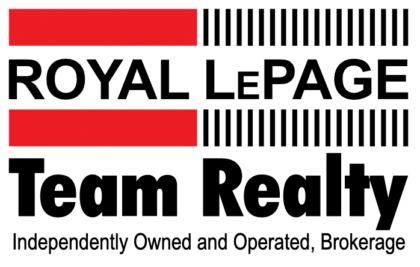Training you is what we do!
NEW LEGISLATION AFFECTING REAL ESTATE IN 2023
On January 1st, several new policies impacting buyers, sellers and real estate professionals in Canada were implemented. Here is a breakdown of the new policies, including important details that may affect your business and your clients:
Federal policies:
Prohibition on the Purchase of Residential Property by Non-Canadians Act (Foreign Buyer Ban)
- The federal government began prohibiting non-Canadians from purchasing residential properties in Canada for a period of two years, beginning on January 1, 2023. This legislation was implemented in an effort to make housing more accessible to Canadians.
- According to the Act, a residential property includes detached homes, buildings with three dwellings or less, semi-detached homes, rowhouses or residential condominium units.
- Penalties: The Act states that a non-Canadian that contravenes the prohibition, or any person or entity that knowingly assists a non-Canadian in contravening the prohibition, can be fined up to $10,000. In addition, a court may order the sale of a property purchased if a non-Canadian is found to have acquired property in contravention of the Act.
- Exemptions include (but are not limited to) temporary residents who are working towards permanent residency, refugee claimants, and international students (if they meet certain criteria); recreational properties such as cottages or lake houses; and homes in municipalities with a population of less than 10,000, are not subject to this ban. The ban does not apply to non-Canadians who are looking to rent a residential property, or those with a spouse or common-law partner who is a Canadian citizen, permanent resident or person registered under the Indian Act.
- More information can be found on the Government of Canada’s website.
- Download this Royal LePage Agent Fact Sheet for quick reference!
Residential Property Flipping Rule (Anti-flipping Tax)
- Profits arising from the sale of a residential property (including a rental property) sold on or after January 1, 2023, that was owned for less than 12 months are subject to full taxation as business income.
- Under the new Rule, the Principal Residence Exemption (PRE) would not be available, meaning that the entire profit will be taxed as 100% business income.
- If the owner loses money on the sale, the loss cannot be claimed as a business loss.
- Exemptions include (but are not limited to) death, divorce or separation, disability or illness, insolvency, or other major life events.
- New legislation is being considered to extend the anti-flipping tax to assignment sales and would apply to transactions occurring on or after January 1, 2023.
- More information can be found on the Government of Canada’s website.
Also of note, the Office of the Superintendent of Financial Institutions (OSFI) has proposed changes to mortgage lending regulations (B-20: Residential Mortgage Underwriting) and is currently holding public consultation. The deadline to submit feedback is April 14, 2023.
Provincial policies:
British Columbia: Homebuyer Protection Period (Cooling-off Period)
- The Homebuyer Protection Period is a mandatory three-business-day term after an offer is accepted, in which buyers can rescind their contract to purchase a residential property, with financial penalties. The protection period is intended to give homebuyers more time to consider whether a purchase is right for them, and secure financing or a home inspection. The policy cannot be waived by the buyer or the seller.
- The protection period begins the next full business day after an offer is accepted. If a purchase offer contains conditions, these will run concurrently with the rescission period.
- The policy includes a cancellation fee worth 0.25% of the purchase price, or $250 for every $100,000, in the event that the sales contract is cancelled.
- The three-day period is applied to all residential real estate sales in the province of British Columbia, including private sales.
- Exemptions include (but are not limited to) residential property that is sold under a court order and property that is located on leased land, among other property types.
- Real estate agents are required to disclose information about the rescission period to their clients, including when a client enters into an agency relationship and when an agent prepares or presents an offer to the seller.
- More information can be found on the Government of British Columbia’s website or the BC Financial Services Authority’s website.
City of Toronto, Ontario: Vacant Home Tax
- The Vacant Home Tax (VHT) is an annual tax that will be levied on vacant Toronto residences, payable beginning in 2023. The goal of the VHT is to discourage owners from leaving their homes empty, in an effort to ease the city’s low housing supply.
- Property owners must declare the status of their home to the City of Toronto, regardless of whether or not the residence is vacant.
- A property is considered vacant if it was not used as the principal residence by the owner or any permitted occupants, or was unoccupied for a total of six months or more, during the previous calendar year.
- A home may be considered vacant if the owner fails to make a declaration of occupancy status, and would therefore be subject to the tax.
- Exemptions include (but are not limited to) a property that is left unoccupied due to the death of the owner, or when renovations are taking place.
- Additional proof of a home’s occupancy may be required if an audit is conducted. Should the homeowner disagree with the City’s decision on the property’s occupancy status, they can apply to have the home reassessed.
- In 2023, the VHT is 1% of a home’s Current Value Assessment (CVA). For example, the VHT is equal to $10,000 on a property with a CVA of $1,000,000. An additional fine of $250 is applied if the applicant submits their occupancy declaration late. If a declaration is falsified or breaks VHT bylaws, the homeowner may face up to $10,000 for each violation.
- When buying or selling a home, the purchasers and vendors are responsible for ensuring that the occupancy declaration is filed. If a closing occurs after the declaration period (after February 3, 2023), the purchaser must submit a declaration in the following year.
- The deadline to declare a home’s 2022 occupancy status has been extended to February 28, 2023.
- More information can be found on the City of Toronto’s website.
City of Ottawa, Ontario: Vacant Unit Tax
- Ottawa’s Vacant Unit Tax (VUT) was approved as a bylaw in May 2022, and implemented in the 2023 taxation year. Similar to other cities with vacancy tax laws, Ottawa introduced its VUT to encourage property owners to maintain, occupy or rent their homes and therefore increase the city’s housing supply.
- Residential homeowners are required to declare the occupancy status of each property that they own to the City of Ottawa annually.
- The VUT applies to non-principal residences vacant for at least 184 days in the previous calendar year.
- Exemptions include (but are not limited to) commercial, industrial and multi-residential properties. If a property is vacant for at least 184 days due to its sale, the death or hospitalization of the owner, construction or use of the home as a cottage rental in a rural area, the owner may qualify for an exemption.
- Proof of occupancy or vacancy is required when submitting a declaration. Additional documentation may be required in the event of a VUT audit.
- A homeowner can apply for a two-stage appeal process if they wish to have the occupancy status of their property reassessed.
- In 2023, the VUT is 1% of a property’s assessed value, which is applied to the Final Tax Bill.
- If a property owner fails to make a declaration by the deadline, they will be fined $250 (fee will be waived in 2023), and can reapply ahead of the Late Declaration deadline. If a homeowner fails to submit a declaration, their property will be deemed vacant by default, and will be subject to the VUT.
- False occupancy status declarations, or failure to provide information when requested, may result in fines of up to $10,000, plus the tax payment.
- The deadline to declare a home’s 2022 occupancy status is March 16, 2023. The Late Declaration deadline is April 30, 2023.
- More information can be found on the City of Ottawa’s website.

CONTACT US:
Royal LePage Team Realty Training Academy
555 Legget Drive, Suite 101
Kanata ON K2K 2X3

